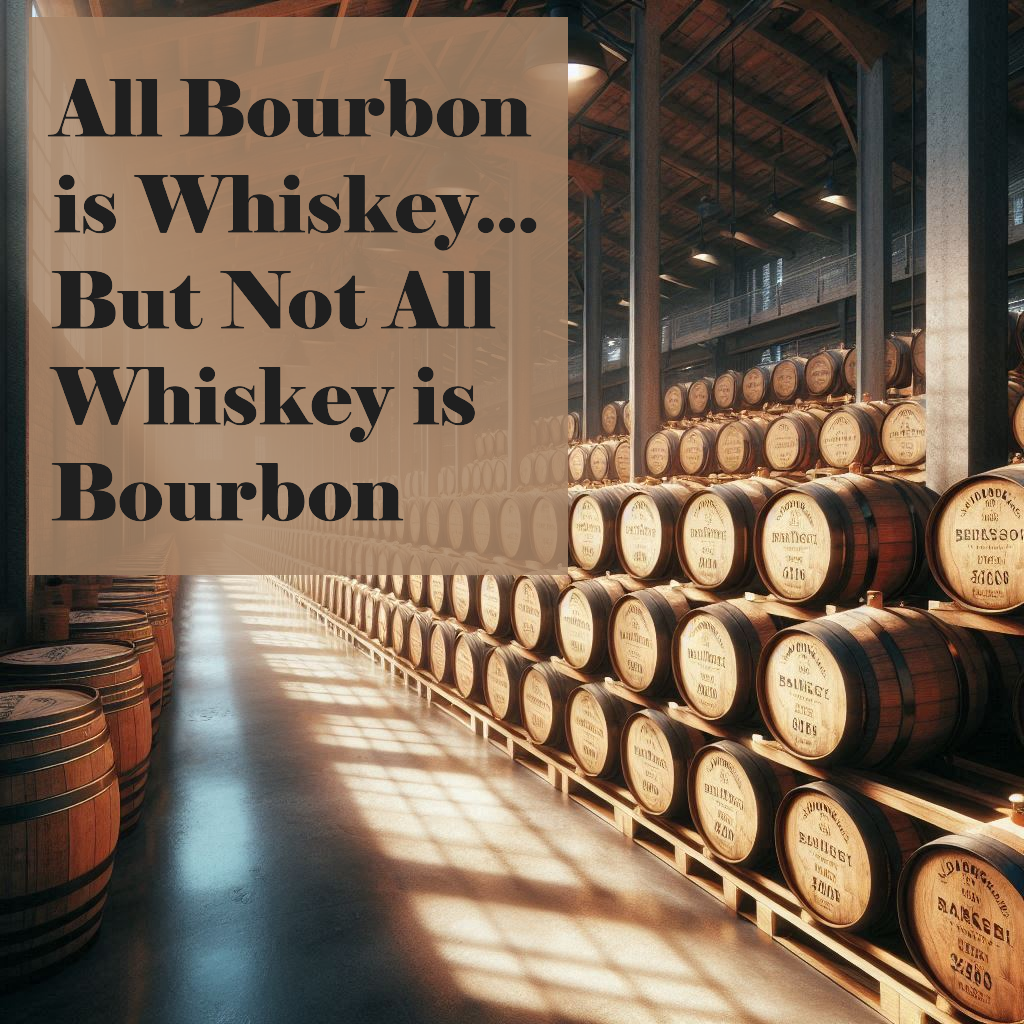All Bourbon Is Whiskey, But Not All Whiskey Is Bourbon

At Spirits Capital, we invest in premium American whiskey as it ages in the barrel, and the majority of barrels in our current portfolio are filled with bourbon. People often think of bourbon when they think of American whiskey, but they are not interchangeable. The term whiskey can be applied to a variety of distilled spirits, but only bourbon is bourbon.
The main difference between whiskey and bourbon lies in specific production criteria and geographic origin. Here’s a breakdown:
Whiskey
Whiskey is actually a broad category of distilled spirits made from fermented grain mash. The grains can include barley, corn, rye and wheat.
- Production: Whiskey can be produced anywhere in the world. The production process generally involves mashing, fermentation, distillation and aging in wooden barrels.
- Types: There are various types of whiskey, including Scotch whisky (made in Scotland), Irish whiskey (made in Ireland), Canadian whisky, American whiskey (which includes bourbon, rye whiskey and Tennessee whiskey), Japanese and even Indian.
Bourbon
Bourbon is a specific type of American whiskey with distinct regulations governing its production.
- Ingredients: To be classified as bourbon, whiskey must be made from a mash bill containing at least 51% corn. The remainder can be made up of barley, rye and/or wheat.
- Geographic Origin: It must be produced in the U.S. (More than 90% of bourbons are made in Kentucky).
- Distillation: It must be distilled at no more than 160 proof (80% alcohol by volume).
- Entry into Barrel: The liquid must enter the barrel for aging at no more than 125 proof (62.5% alcohol by volume).
- Aging: It must be aged in new, charred oak barrels. There’s no minimum aging requirement, but it must age for at least two years to be labeled “straight bourbon,” and if it’s aged less than four years, it must state the age on the label.
- No Additives: Must not contain any additives like colorings or flavorings.
- Bottling Proof: When bottled, bourbon must be at least 80 proof (40% alcohol by volume).
In essence, bourbon is a specific type of American whiskey with unique production standards and ingredients that differentiate it from other types of whiskey. In fact, a 1964 U.S. Congressional resolution declared bourbon to be a “distinctive product of the United States.”
Several factors contribute to bourbon’s esteemed reputation:
- Distinctive Flavor Profile: Bourbon is known for its rich, sweet and complex flavors, often featuring notes of vanilla, caramel and oak. This unique profile comes from the high corn content and the charred oak barrels used for aging.
- Craftsmanship and Tradition: The art of bourbon-making has been honed over hundreds of years, with many distilleries practicing time-honored methods. This tradition, combined with innovation, contributes to a high-quality product.
- Aging Process: Bourbon’s aging in new charred oak barrels imparts a deep, rich flavor and color. The interaction between the whiskey and the wood during aging creates complex and nuanced flavor profiles.
- Cultural Significance: Bourbon has a strong cultural heritage in the U.S., particularly in Kentucky, where it has been produced for generations. This historical context adds to its allure and prestige.
- Global Recognition: Bourbon has gained international acclaim and respect. Competitions and awards often recognize bourbon for its quality and craftsmanship.
- Variety and Accessibility: There’s a wide range of bourbons available, from affordable everyday options to high-end, limited editions. This variety allows bourbon to appeal to a broad audience, from casual drinkers to connoisseurs.
Even when compared to other American whiskeys, bourbon is distinct. It has a sweeter, less spicy profile than rye whiskey, which is made with at least 51% rye content, rather than corn. It is most like Tennessee whiskey, which is also made from 51% corn and aged in new charred oak barrels. However, Tennessee whiskey must be made in the state of Tennessee and typically undergoes charcoal filtering before maturation to create a mellower flavor.
Ultimately, whether bourbon is the best American whiskey depends on individual tastes. Whiskey preferences are highly personal, and other styles have their unique qualities and passionate followings.
About Spirits Capital
Spirits Capital is a fintech company that merges technology with the alternative asset class of premium American whiskey. Spirits has built a platform that provides investors with a secure and transparent way to capitalize on the growth in value of whiskey while it matures in the barrel. In addition, Spirits has created the Distilled Barrels Financial Exchange (“DBFEX”), a cutting-edge digital platform for the global trading of aged whiskey barrels. Learn more at www.spiritscap.com.